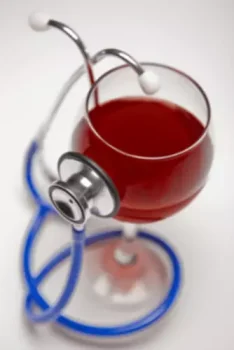
The new report, which combined more than 107 studies with almost five million participants, used longitudinal cohort studies, meaning researchers followed the participants over many years. The authors used statistical analysis to consider other factors affecting participants’ health. Since most alcohol studies were observational, other factors in people’s lives could have influenced their health outcomes.
As of now, the evidence leads us to these conclusions:
While being debated, the Centers for Disease Control and Prevention (CDC) recommends moderate drinking, or no more than one drink per day for women and two per day for men. A new report from the World Health Organization (WHO) attributes 2.6 million deaths per year to alcohol consumption—4.7% of all deaths. A recent successful effort in the U.S. to launch an international study was funded by the National Institutes of Health. Although the proposal was peer-reviewed and initial participants had been randomized to drink in moderation or to abstain, post hoc the NIH decided to stop the trial due to internal policy concerns.
Life Work
Many people facing anxiety and depression drink intentionally to reduce stress and improve mood. While drinking may provide a few hours of relief, it may worsen your overall mental health and spark a vicious cycle (23, 24). Some past studies had suggested that moderate drinking might be good for your health.

Mayo Clinic Press
During pregnancy, drinking may cause the unborn baby to have brain damage and other problems. Heavy drinking, including binge drinking, is a high-risk activity. Loose use of the terms “moderate” and “a drink” has fueled some of the ongoing debate about alcohol’s impact on health. The President’s Council on Sports, Fitness & Nutrition had a busy weekend in the nation’s capital.
- You’re not doing your body any favors if you’re drinking for health reasons.
- According to Eric Rimm, professor of epidemiology and nutrition at Harvard T.H. Chan School of Public Health, the problem is not alcohol itself but the way it’s used.
- Past studies may have masked the health benefits of not drinking at all.
Observational study limitations

Check out materials you can use to spread the word about the importance of physical activity. If you tend to drink excessively or notice that alcohol causes problems in your life, you should avoid it as much as possible. Red wine appears to be particularly beneficial because it is very high in healthy antioxidants. Binge drinking early in pregnancy is particularly risky for how to drink moderately the developing baby (65).
- Large studies and systematic reviews found that moderate drinking improves cholesterol levels, reduces the risk of heart disease, improves cognition, and even helps you to live longer.
- Getting extra folate may cancel out this alcohol-related increase.
- You should seek the advice of your physician or other qualified health provider with any questions you may have regarding a medical condition.
- Many past studies did not consider other factors that could have influenced the results.
- But heavy drinking carries a much higher risk even for those without other health concerns.
Binge drinking is behavior that raises blood alcohol levels to 0.08%. That usually means four or more drinks within two hours for women and five or more drinks within two hours for men. The bottom line is that alcohol is potentially addictive, can cause intoxication, and contributes to health problems and preventable deaths. If you already drink at low levels and continue to drink, risks for these issues appear to be low. Many people drink alcohol as a personal preference, during social activities, or as a part of cultural and religious practices.
Health Alerts from Harvard Medical School
In short, people who completely abstain from drinking have a higher risk of dying earlier from other causes. In fact, your overall diabetes risk tends to drop with moderate alcohol consumption. However, when it comes to heavy drinking and binge drinking, your risk rises (53, 54, 55, 56). Consuming moderate amounts of alcohol may offer some health benefits.
Controlling Your Blood Pressure
The researchers found no association between moderate alcohol drinking and the risk of death from all causes. Deaths from all causes ranged from dying from heart disease to road crashes, and fatal injuries. “The apparent benefits disappear and the little benefits that were there were no longer significant,” Stockwell said.

- However, studies investigating the link between alcohol and weight have provided inconsistent results (31).
- For women, more than three drinks on any day or more than seven drinks a week is heavy drinking.
- Here’s what you need to know about drinking, and how its alleged health benefits aren’t all that legitimate.
- Their analysis included the drinking habits of 4.8 million people, making it one of the largest pieces of evidence criticizing alcohol’s lack of health benefits.
- If true, this information points to an urgent need for effective prevention strategies.
Never disregard professional medical advice or delay in seeking it because of something you have read on this website. The Nutrition Source does not recommend or endorse any products. Throughout the 10,000 or so years that humans have been drinking fermented beverages, they’ve also been arguing about their merits and demerits. The debate still simmers today, with a lively back-and-forth over whether alcohol is good for you or bad for you.
Recent research indicates drinking any alcohol could increase dementia risk.
When they reran the findings taking these biases into consideration, the authors found no link between alcohol and better heart health. “This created an absolute stir and bombshell that made headlines all over the world,” recalled Stockwell. Researchers thought if they could find key mechanism, science might someday unlock benefits minus harm that comes with alcohol. You can take steps to lower your risk of alcohol-related harms.
